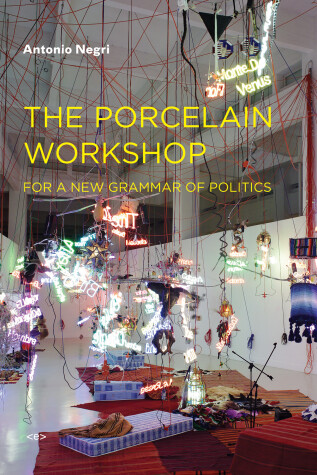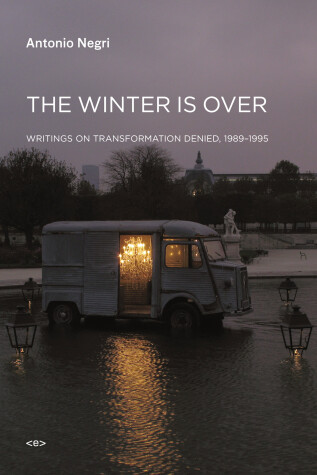Semiotext(e) / Foreign Agents
2 total works
In 2004 and 2005, Antonio Negri held ten workshops at the Collège International de Philosophie in Paris to formulate a new political grammar of the postmodern. Biopolitics, biopowers, control, the multitude, people, war, borders, dependency and interdependency, state, nation, the common, difference, resistance, subjective rights, revolution, freedom, democracy: these are just a few of the themes Negri addressed in these experimental laboratories. Postmodernity, Negri suggests, can be described as a “porcelain factory”: a delicate and fragile construction that could be destroyed through one clumsy act. Looking across twentieth century history, Negri warns that our inability to anticipate future developments has already placed coming generations in serious jeopardy. Describing the years 1917-1968 as the “short century,” Negri suggests that by the end of it, all of the familiar markers of modernity (including that of socialism) had lost their relevance. Confronted with an intolerable reality, indignation and the revolutionary will to transform the world have both taken new forms and must be understood anew, free of modernist assumptions. In the impassioned debates recounted in this book, Antonio Negri attempts to describe the formation of an alternative political horizon and looks for a way to define the practices and modes of expression that democracy could take.Antonio Negri is a philosopher and essay writer. A political and social activist in the 1960s and 1970s in Italy, he taught political sciences for many years and has written numerous books on political philosophy including Marx beyond Marx (1979), The Savage Anomaly (1983), Insurgencies (1997); and in collaboration with Michael Hardt, Empire (2000) and Multitude (2004).
Automation and information technology have transformed the organization of labor to such an extent that the processes of exploitation have moved beyond the labor class and now work upon society as a whole. If this displacement has destroyed the political primacy of the labor class, it has not, however, eliminated exploitation; rather, it has broadened it, implanting it within the given conditions of the most diverse spheres of society.
—from The Winter Is Over
In late 1995, in opposition to the conservative agenda of Jacques Chirac and his prime minister Alain Juppé and their proposed widespread welfare cuts, French students rose up against their government; public sector workers, together with all the major trade unions, went on strike. When railway workers and Paris Metro personnel joined in the protests, France's public transportation system came to a halt. These extensive social upheavals, the likes of which had not been seen in France since 1968, found widespread public support and fuelled the creation of many political organizations. Chirac backed down from restructuring the public retirement system.
Antonio Negri's The Winter is Over comes out of the glimmer of optimism created by the events of 1995, when the long, cold season of neoliberalism, Thatcherism, Reaganomics, reaction, and counterrevolution appeared to have run its course. Published in Italian in 1996, The Winter is Over brings together a series of articles, speeches, and other documents written by Negri between 1989 and 1995 at the threshold of this thaw. It offers a revealing and wide-reaching account of those years of change and brink-of-change, focusing on such topics as the networks of social production, the decline of “limp thought,” the end of applied socialism, the Gulf War, and, finally, Italy's transition to its so-called “Second Republic,” as seen by an exile.

